Creating a beginner-friendly blog post about GitHub account creation, repository creation, starring, forking, and other relevant topics.
Here’s the content explained in stepwise sections:
Introduction:
- GitHub is your Developer's collaboration hub.
- Collaboration is key in today’s digital world.
- GitHub is where developers unite, collaborate, and innovate.
Section 1: Creating a GitHub Account
Step-by-step instructions on how to create a GitHub account.
Go to GitHub website
Put your email and continue…

Tip:- Try to choose username same as LinkedIn
3. Follow all subsequent instructions and open an account.
4. After signup your github looks like almost this type
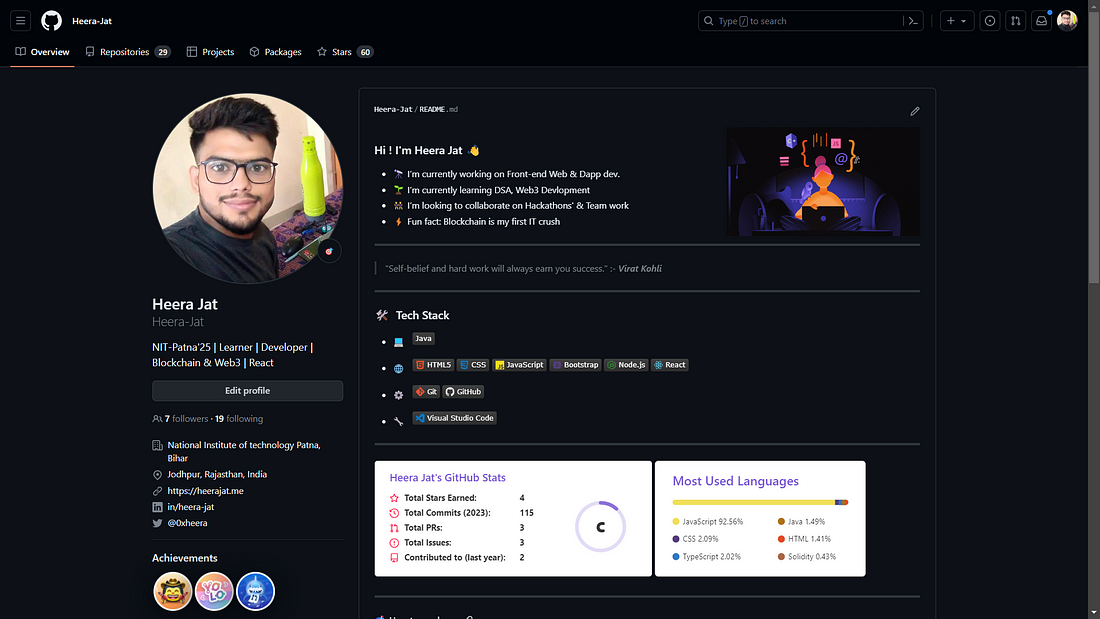
Section 2: Setting Up Your Profile
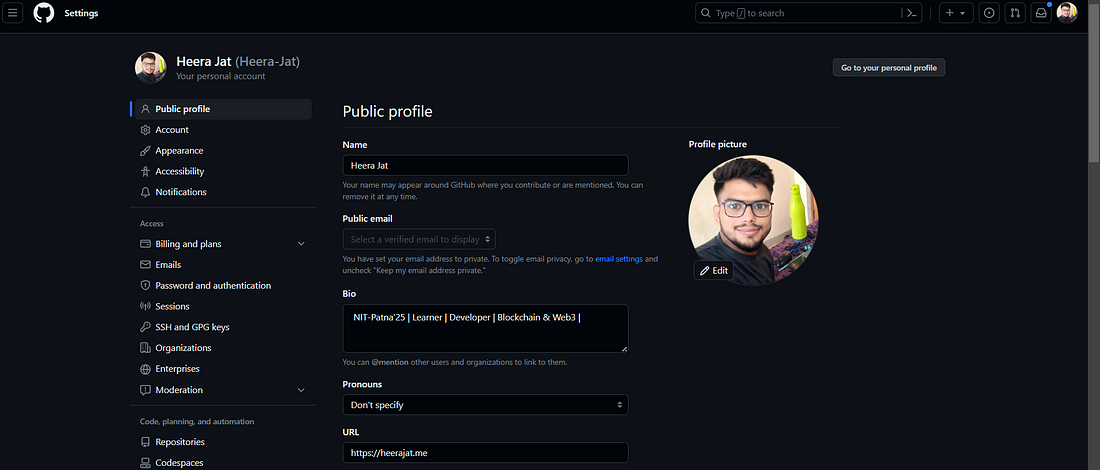
Edit Profile: Walk through the process of adding a profile picture, bio, and other relevant information.

Add Your Personal Information:
Scroll down to the “Personal information” section.
You can enter your full name, company, location, website, and Twitter username if you have them.
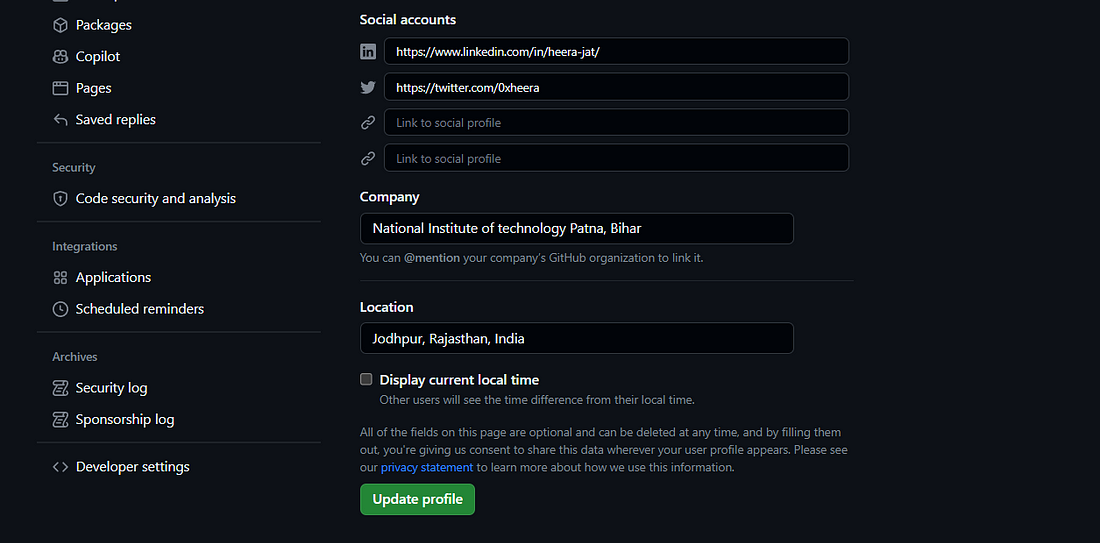
Section 3: Creating Your First Repository
What a repository is and why it’s important?
Ans:- A repository, often abbreviated as “repo,” in the context of software development and version control, is a central storage location for storing and managing a collection of files, code, and related resources that make up a software project.
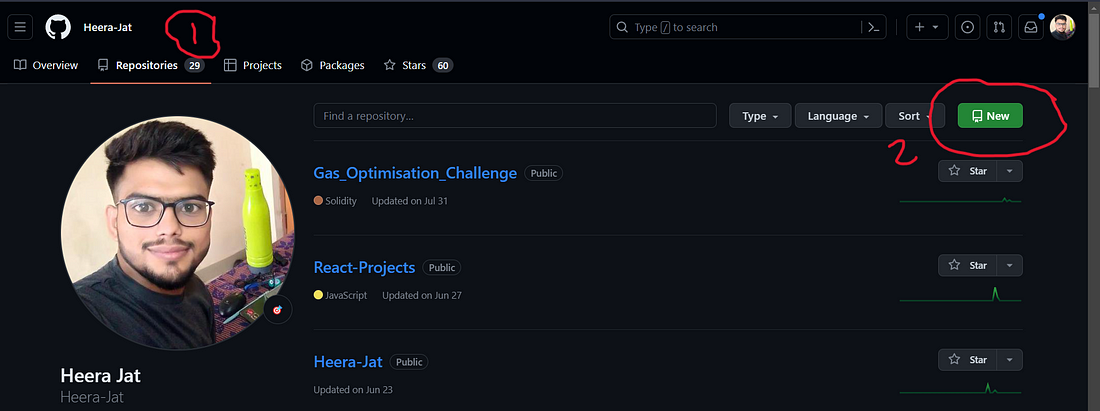
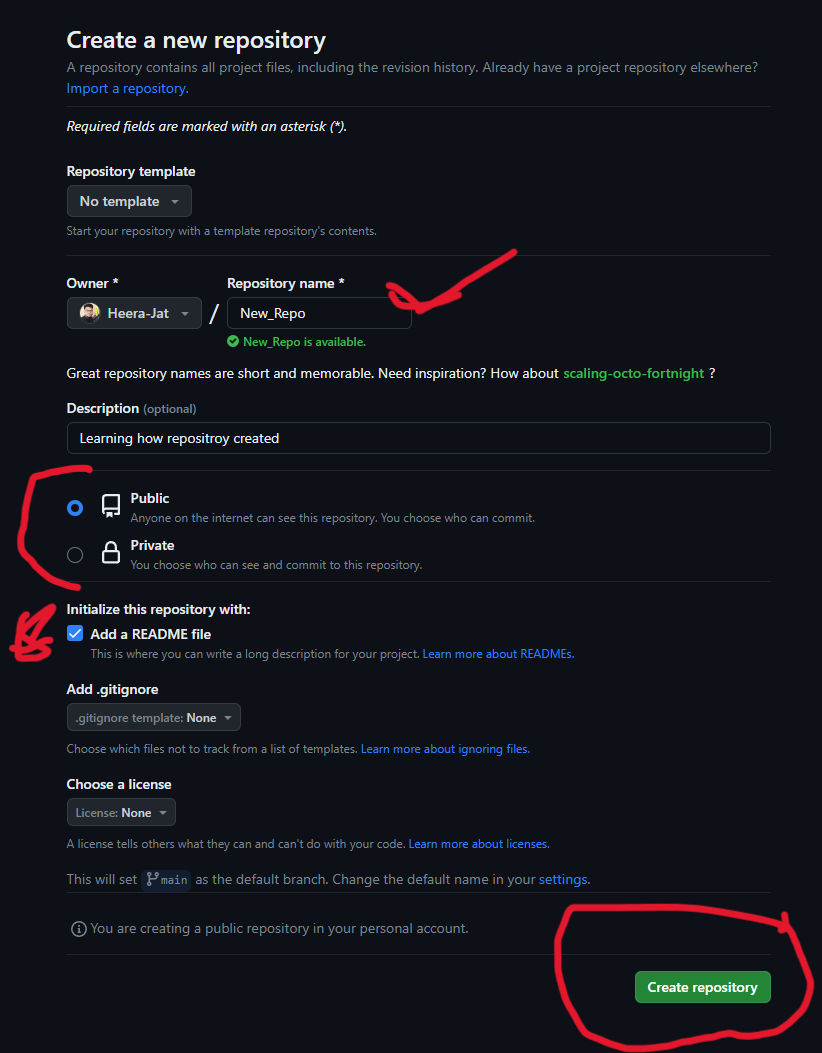
Fill field then press ‘create repository ’
After that you will see your new repo as like this, You can add file or code anything to this repo.
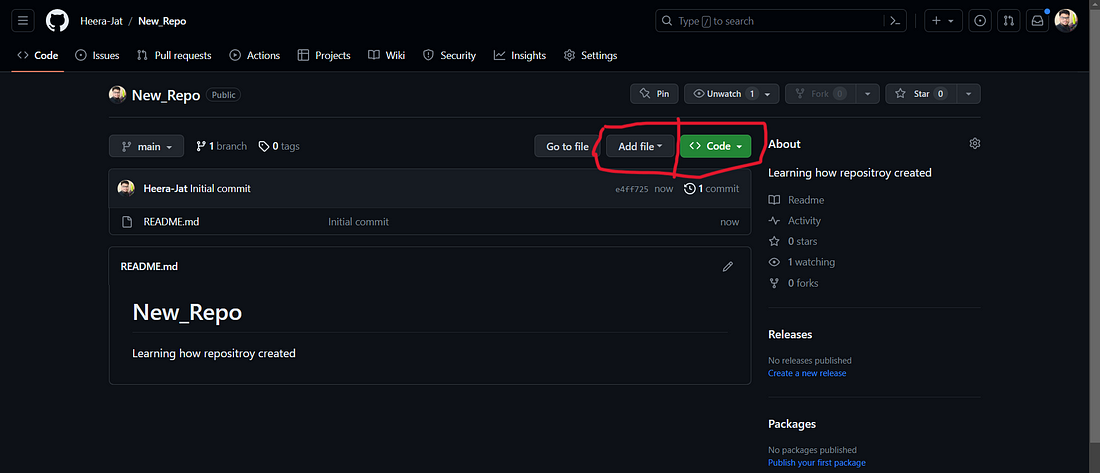
Section 4: Starring and Forking Repositories
Starring a Repository: Starring a repository on GitHub means marking it as a favorite or bookmarking it for easy access and tracking. It’s a way to show your interest and support for a project.
Forking: Creating a personal copy of another user’s repository. When you fork a repository, you duplicate it, and you can make changes to your copy without affecting the original repository.
Go to this repo(link) or any repo on internet.
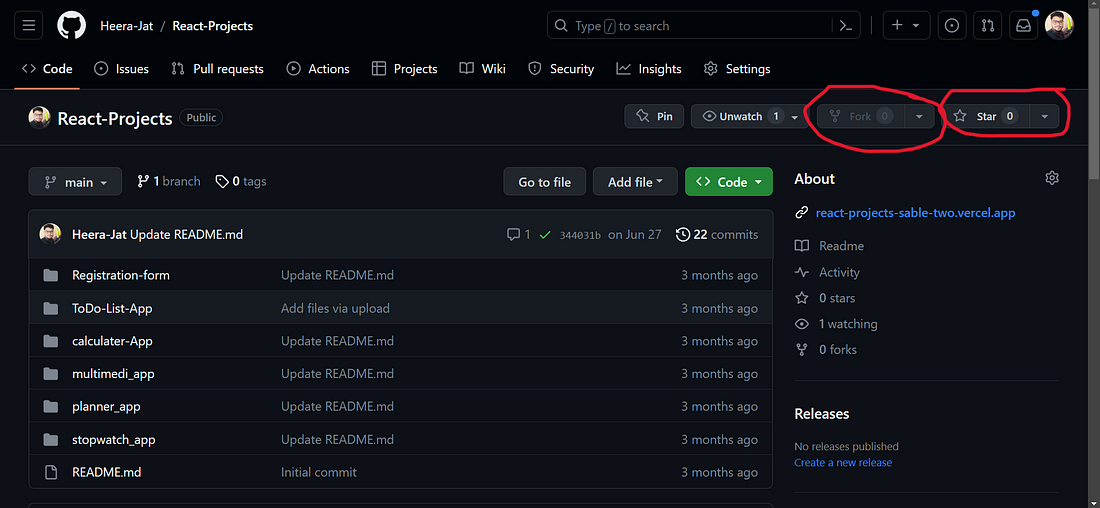
Section 5: Conclusion
Key takeaways from the blog post:
GitHub Introduction
Creating a GitHub Account
Personalizing Your Profile
Creating a Repository
Starring and Forking Repositories